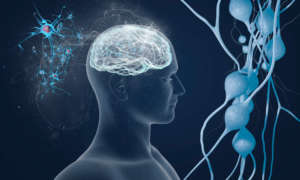How to tell the difference
It’s normal to experience unhappiness when we’re facing challenges in life. But when it goes beyond an unhappy moment, we need to consider something deeper is going on. It’s time to start looking at the big picture – the causes, symptoms and solutions.
Do you find yourself getting upset over small things, such as a change in plans? Do you feel discouraged about getting anything done? Are you lacking energy and moving about your day mindlessly? These issues could be the result of present circumstances, in which case, they could resolve on their own. For example, let’s imagine you’re about to hit a deadline, and your presentation isn’t quite ready. Or maybe you broke up with your partner and are feeling lonely. Yes, these are stressful situations, but they are temporary problems.
However, if you’re experiencing a shift in mood that has lasted for more than a few weeks, you might be suffering from depression. According to the Anxiety and Depression Association of America’s statistics for 2014, depression had affected approximately 15.7 million American adults in the previous year.
How to tell the difference
 Depression is a disorder. It’s more extreme than general unhappiness – it affects your entire being to the point where you don’t find pleasure doing anything anymore.
Depression is a disorder. It’s more extreme than general unhappiness – it affects your entire being to the point where you don’t find pleasure doing anything anymore.
Here are a few symptoms to look for:
- Sleeping: Are you sleeping too much? Too little? Struggling to fall sleep at all?
- Eating: Are you eating too much? Not enough? Have you noticed substantial weight gain or loss?
- Lethargy: How are your energy levels?
- Distraction: Are you able to concentrate on important things? Can you stay focused on a conversation or project?
- Negative Thoughts: Are you overwhelmed with pessimism? Do you feel trapped in your own mind?
Keeping track of your thoughts will also help distinguish patterns and find a diagnosis if it becomes more serious. A useful tool to process your feelings is writing in a journal.
Why do I feel like this?
 Depression is marked by changes in brain chemistry. Genetics, hormone levels or certain medical conditions could be to blame. Traumatic events, extreme stress or severe grief can also cause depression to spin out of control.
Depression is marked by changes in brain chemistry. Genetics, hormone levels or certain medical conditions could be to blame. Traumatic events, extreme stress or severe grief can also cause depression to spin out of control.
Ask yourself: Did something significant happened in my life recently? What is it? Who does it involve? How do you feel when you think about it?
It’s possible for depression to come out of nowhere, so don’t feel discouraged if you can’t pinpoint a particular experience.
What can I do?
 Mindfulness
Mindfulness
By being in the present moment, you can start breaking down your feelings. Become aware of your thought process, and try to find the trigger for your negative thinking.
Exercise
Physical activity releases endorphins that can have positive long-term benefits. These feel-good chemicals can rewire your brain and improve your overall health.
Sleep
Getting enough rest is very important for our well being. Try to establish good sleeping habits and a regular bedtime.
Talk about it
Confide in someone who makes you feel safe. Be completely honest about how you’ve been feeling. Expressing your thoughts out loud can be very therapeutic and also help you better understand your emotions.
Depression can be a real problem, even if it’s unknown to others. It’s nothing to be embarrassed or ashamed of, but definitely deserves time and attention. If you feel like you can’t talk about what’s going on in your life with a friend or family member, seek out a professional. Know that you are not alone. And remember, you have the power to take back control of your health.

Rose Caiola
Inspired. Rewired.
Post Disclaimer
This content is for informational purposes only and does not constitute medical advice. Please consult a healthcare professional for any medical concerns.



